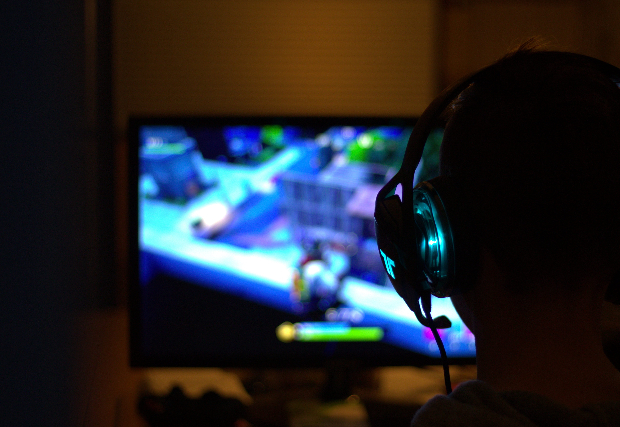A Game Researcher Delves into the Health Effects of Gaming
Stereotypes about video games and gamers have long carried a negative tone in public debate. Only in the last few years has gaming started to gain acceptance as a legitimate way to spend time. For example, you can now watch e-sports on Yle's channels, and the success of Finnish e-athletes has led to the creation of both fan products and support songs.

Veli-Matti Karhulahti, a university researcher at the University of Jyväskylä, has been studying gaming as a profession for over a decade, and nowadays especially from the perspective of health.
"It has been thought, and still largely is thought, that gaming is not terribly healthy," Karhulahti says.
The European Commission has granted Karhulahti a two-million-euro ERC research project to study gaming experiences and the health impact of gaming. In addition, he studies working life gaming disorders in a project funded by the Finnish Work Environment Fund.
"The idea is to build a thorough understanding of what the new diagnostics connected to gaming are all about," Karhulahti explains.
The World Health Organization (WHO) has recently classified problematic video gaming as a distinct mental disorder. There is no official Finnish translation of "gaming disorder" yet, and it is possible that "digital game addiction" will become the official term.
"There is still not much information about what kind of problems gaming disorder contains and how diverse the phenomenon is," Karhulahti notes
He brings competitive gaming, where players train intensively, up as an example. The criteria for gaming disorder and goal-oriented competitive gaming sometimes conflict. Many people seeking help for gaming-related problems also face other challenges in life, making the causality unclear.
Openly Shared Data Save Resources
Previously, Karhulahti has researched, among other topics, video gaming during the COVID-19 pandemic and the physical training of e-athletes. The datasets from both studies are available from FSD.
"Unopened data have been an obstacle in our research field for a long time. Data collected on various gaming disorders have not been accessible, making it impossible to reproduce research or examine the research questions from another perspective. Our idea has been to conduct research where data are available and can be re-used," Karhulahti explains.
He emphasizes that the existence of FSD's data repository is a significant advantage for researchers. He notes that FSD is also internationally known, and foreign colleagues are a little envious of Finns.
"They would also like to share large datasets, but their infrastructures are not the same," he says.
Many data repositories preserve mainly quantitative data, but FSD's collections also contain qualitative data materials. Although it is primarily the researcher's responsibility to consider the various aspects of the research, such as data protection and ethics, FSD's experts add an additional layer of trustworthiness and security.
"The projects are large and include many components. Data archive's experts improve the final output," Karhulahti adds.
He hopes that datasets from his research project will be used in further research. Every research project has limited resources, so sharing data openly enables the birth of new research.
"When the existing data are re-used, the resources of both researchers and research subjects are saved. It's in everyone's interest," he concludes.
Text: Petra Viitanen (translation: Tuomas J. Alaterä). Stockphoto: pxfuel